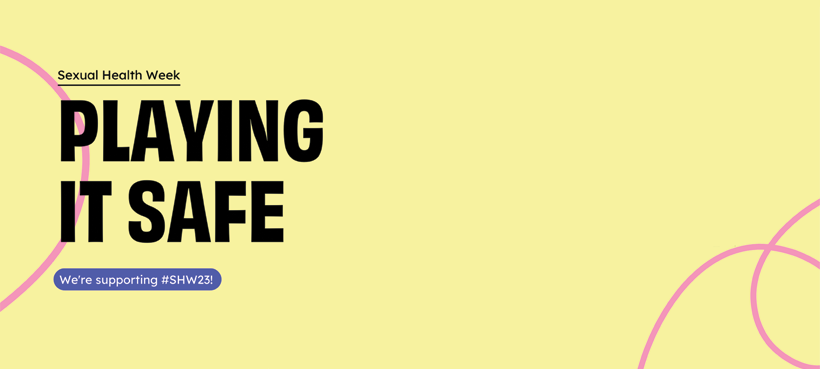
How we can help young people this sexual health week
Sexual health education is a critical component of our overall well-being, yet it remains a topic often shrouded in taboo and discomfort. Sexual Health Week provides an excellent opportunity to highlight the significance of imparting knowledge about sexual health to young individuals. In this blog post, we will explore the multifaceted importance of educating young people about sexual health, with a focus on STI testing, consent, healthy relationships, and sexual pleasure.
1. STI Testing: Knowledge Empowers
Sexually transmitted infections (STIs) are a pressing public health concern, particularly among young adults. Education about STIs and the importance of regular testing is crucial for several reasons:
a. Prevention: Knowledge of STIs empowers young people to make informed decisions about their sexual health. They can take steps to reduce their risk of acquiring or spreading infections, such as using condoms and testing regularly.
b. Early Detection: STIs can sometimes be symptomless, making regular testing essential. Educating young people about the benefits of routine testing helps detect infections early, allowing for prompt treatment and preventing potential complications.
c. Reducing Stigma: Discussing STI testing openly and without judgment helps reduce the stigma associated with STIs. This, in turn, encourages more individuals to get tested and seek treatment when necessary.
2. Consent: The Cornerstone of Healthy Relationships
Consent is a fundamental aspect of sexual health and relationships. Teaching young people about consent is not just about saying 'no' or 'yes' but fostering a deeper understanding of boundaries, respect, and communication:
a. Empowering Choices: Education about consent empowers young people to assert their boundaries and make informed decisions about their bodies. It encourages open communication about desires and limits with partners.
b. Preventing Coercion: Teaching about consent can help protect individuals from coercion or pressure to engage in sexual activities they are uncomfortable with. It encourages respect for one another's autonomy.
c. Legal Awareness: Understanding the legal aspects of consent is crucial in navigating the complexities of sexual relationships. It ensures that young people are aware of the consequences of non-consensual actions.
3. Healthy Relationships: Nurturing Emotional Well-being
Sexual health education should extend beyond the physical aspects of sex and encompass the emotional and psychological facets of healthy relationships:
a. Communication Skills: Educating young people about effective communication in relationships helps them express their feelings, needs, and concerns, fostering stronger emotional connections.
b. Recognising Abuse: Providing knowledge about the signs of emotional, physical, or sexual abuse equips young individuals with the tools to identify and seek help in abusive relationships.
c. Building Trust and Respect: Understanding the importance of trust and respect within relationships lays the foundation for nurturing fulfilling and mutually satisfying partnerships.
4. Sexual Pleasure: Embracing Healthy Sexuality
Sexual pleasure is an integral part of the human experience. Encouraging open and non-judgmental discussions about sexual pleasure helps young people:
a. Promote Body Positivity: Education on sexual pleasure can contribute to a positive body image and self-acceptance, reducing feelings of shame or inadequacy.
b. Promote Safer Sex: Young individuals who are aware of their own and their partner's sexual desires are more likely to engage in safe and consensual sexual activities.
c. Empower Self-Exploration: By fostering an environment of curiosity and education, we empower young people to explore their own bodies and desires, promoting self-confidence and a healthier approach to sexuality.
Conclusion
Sexual health education for young people is not just about preventing negative outcomes; it's about promoting a positive and fulfilling approach to sexuality and relationships. During Sexual Health Week and throughout the year, let's remember that knowledge is the key to empowerment. By providing young individuals with comprehensive information about STI testing, consent, healthy relationships, and sexual pleasure, we can help them make informed decisions, protect their well-being, and build a foundation for positive sexual health routines.
